The Importance of Food-Grade Lubricants
In the food manufacturing industry, maintaining a safe and contaminant-free production environment is paramount. Food-grade lubricants play a crucial role in achieving this goal by minimising the risk of contamination and ensuring compliance with stringent regulatory standards.
Activate Lubricants is dedicated to providing high-quality, food-grade lubricants that meet these essential requirements.
One of the primary reasons for using food-grade lubricants is to protect against contamination and ensure food safety. These specialised lubricants are formulated to be non-toxic and safe for incidental food contact, reducing the potential for harmful substances to enter the food supply chain. Even trace amounts of non-food-grade lubricants can compromise the safety and quality of food products, leading to potential health risks for consumers.
Compliance with regulatory standards and audits is another critical aspect of using food-grade lubricants. Food safety authorities, such as the European Food Safety Authority (EFSA) and other third-party auditing bodies, have established strict guidelines and regulations for the use of lubricants in food processing facilities.
Failure to comply with these regulations can result in costly fines, product recalls, and damage to a company's reputation. By implementing approved food-grade lubricants, manufacturers demonstrate their commitment to upholding the highest standards of food safety and quality.
Moreover, the use of food-grade lubricants contributes to maintaining equipment efficiency and extending its lifespan. These lubricants are designed to withstand the harsh conditions found in food processing environments, such as high temperatures, moisture, and exposure to chemicals. By providing optimal lubrication and protection, food-grade lubricants help to reduce friction, wear, and tear on machinery, ultimately leading to increased equipment longevity and reduced maintenance costs.
In summary, the importance of food-grade lubricants cannot be overstated. They play a vital role in protecting against contamination, ensuring compliance with regulatory standards, and maintaining equipment efficiency, all of which contribute to a safe, reliable, and cost-effective food production process.
Key Qualities of Food-Grade Lubricants
Food-grade lubricants must possess several critical qualities to ensure they are safe for use in food processing environments and do not pose a contamination risk. Firstly, these lubricants must be non-toxic and safe for incidental food contact. This means that if a small amount of the lubricant were to accidentally come into contact with food products, it would not cause harm or introduce hazardous substances.
Additionally, food-grade lubricants need to be highly resistant to heat, moisture, and chemical exposure. Food processing often involves high temperatures, wet conditions, and exposure to various cleaning agents and sanitizers. The lubricant must be able to withstand these harsh environments without breaking down or degrading, which could lead to equipment failure or contamination.
Another crucial quality is low odour and taste transfer properties. Food-grade lubricants should be virtually odourless and tasteless, as they may come into proximity with food products. Any strong odours or flavours transferred from the lubricant could negatively impact the taste and quality of the food, leading to consumer complaints or product recalls.
By meeting these key qualities, food-grade lubricants help ensure the safety and integrity of food products while also protecting valuable processing equipment from premature wear and failure.
Types of Food-Grade Lubricants
Food-grade lubricants can be broadly categorised into three main types: mineral oil-based, synthetic, and bio-based lubricants.
Mineral Oil-Based Lubricants: These are derived from highly refined petroleum oils and are among the most commonly used food-grade lubricants. They offer good lubrication properties, thermal stability, and resistance to oxidation. Mineral oil-based lubricants are suitable for a wide range of applications, including bearings, gears, and hydraulic systems.
Synthetic Lubricants: These are man-made lubricants designed to provide superior performance and longer service life compared to mineral oils. There are several types of synthetic food-grade lubricants:
- Polyalphaolefin (PAO): PAO-based lubricants offer excellent oxidation resistance, low volatility, and a wide temperature range. They are commonly used in high-temperature applications and can provide extended lubricant life.
- Polyalkylene Glycol (PAG): PAG lubricants are known for their good thermal stability, low pour points, and resistance to moisture. They are often used in refrigeration compressors and other low-temperature applications.
- Ester-Based Lubricants: These are synthetic esters derived from natural fatty acids or alcohols. Ester-based lubricants provide good lubricity, low volatility, and biodegradability. They are suitable for various applications, including food processing equipment and environmentally sensitive areas.
Bio-Based Lubricants: These are lubricants derived from renewable sources, such as vegetable oils and animal fats. Bio-based lubricants are biodegradable, non-toxic, and environmentally friendly. They can be used in various applications, including food processing, agriculture, and forestry.
- Vegetable Oils: Lubricants made from vegetable oils, such as rapeseed, soybean, or sunflower oils, offer good lubricity and low toxicity. However, they may have limited oxidation stability and temperature range.
- Animal Fats: Lubricants derived from animal fats, such as tallow or lard, can provide good lubrication properties and are often used in applications where biodegradability is important.
The choice of food-grade lubricant type depends on factors such as the application, temperature range, load conditions, and environmental considerations. Proper selection and maintenance of food-grade lubricants are crucial for ensuring equipment performance, food safety, and regulatory compliance.
Identifying Approved Food-Grade Lubricants
When it comes to selecting food-grade lubricants, it's crucial to ensure they meet stringent safety and regulatory standards. One of the primary ways to identify approved lubricants is to look for certifications from reputable organisations. The NSF (National Sanitation Foundation) certification is widely recognized and indicates that a lubricant is safe for use in food processing environments with incidental food contact.
For facilities that require Halal or Kosher compliance, it's essential to check for these certifications as well. Halal certification ensures that the lubricant's ingredients and manufacturing process adhere to Islamic dietary laws, while Kosher certification guarantees compliance with Jewish dietary regulations.
In addition to third-party certifications, it's crucial to verify that the lubricant complies with relevant European regulations. Ensuring that the lubricant meets the manufacturer's specifications for food-grade applications is essential for maintaining compliance and minimising contamination risks.
Implementing a Lubrication Management Program
Implementing a comprehensive lubrication management program is crucial for ensuring audit compliance and maintaining food safety standards. This proactive approach should begin with a thorough plant-wide lubrication survey to identify all lubrication points, equipment types, and current lubrication practices.
During the survey, it's essential to assess the suitability of existing lubricants, identify potential contamination risks, and evaluate the effectiveness of current lubrication schedules and procedures. This data-driven approach will provide a solid foundation for developing a tailored lubrication management plan.
Once the survey is complete, the next step is to establish clear lubrication schedules and procedures for each piece of equipment. These schedules should be based on manufacturer recommendations, operating conditions, and industry best practices. Detailed procedures should outline the specific lubricants to be used, application methods, and any necessary safety precautions.
Proper staff training is a critical component of an effective lubrication management program. All personnel involved in lubrication activities should receive comprehensive training on handling and applying food-grade lubricants safely and correctly. This training should cover topics such as lubricant identification, contamination prevention, equipment preparation, application techniques, and proper disposal methods.
Regular refresher training and competency assessments should be conducted to ensure that staff members remain up-to-date with the latest lubrication practices and regulatory requirements. Additionally, clear documentation and record-keeping procedures should be established to track staff training and ensure compliance.
Maintaining Equipment and Lubricant Integrity
Proper storage and handling of food-grade lubricants are crucial to maintaining their integrity and preventing contamination. Lubricants should be stored in a cool, dry place away from direct sunlight and heat sources. Containers must be kept sealed when not in use to prevent moisture, dust, or other contaminants from entering.
Contamination control is also essential for ensuring the safety and quality of food-grade lubricants. Cross-contamination between food-grade and non-food-grade lubricants can occur due to shared equipment, tools, or storage areas. Implementing strict segregation practices, colour-coding systems, and dedicated storage areas can help prevent this issue.
Equipment cleanliness is another critical factor in maintaining lubricant integrity. Machinery and surfaces that come into contact with food-grade lubricants should be cleaned and sanitised regularly according to established procedures. This helps remove any residue, debris, or contaminants that could compromise the lubricant's quality or introduce foreign materials into the food production process.
Regular inspections and maintenance of equipment are also necessary to ensure proper lubrication and identify any potential issues. Inspections should focus on checking for leaks, worn seals or bearings, and any signs of contamination or degradation. Preventive maintenance, such as timely lubricant changes and equipment overhauls, can help extend the lifespan of machinery and prevent costly breakdowns or production disruptions.
Documentation and Recordkeeping
Proper documentation and recordkeeping are essential for maintaining traceability and demonstrating audit readiness when it comes to food-grade lubrication practices. A comprehensive documentation system should include detailed lubrication logs that track the date, location, equipment, lubricant used, and technician responsible for each lubrication task. These logs serve as a valuable reference for scheduled maintenance and can provide insights into potential issues or areas for improvement.
In addition to lubrication logs, it is crucial to document the usage of lubricants, including batch numbers and expiration dates. This information ensures that only approved, unexpired lubricants are used in food production areas, minimising the risk of contamination. Maintaining accurate records of lubricant usage also aids in inventory management and timely reordering.
Traceability is a key aspect of audit readiness, and proper documentation plays a vital role in this regard. By meticulously recording the details of lubricant application, batch numbers, and expiration dates, facilities can easily trace the source of any potential issue and take appropriate corrective actions if needed. This level of traceability not only demonstrates compliance but also instils confidence in auditors and regulatory bodies.
Overall, a well-organised and thorough documentation system for food-grade lubrication practices is a cornerstone of audit readiness. It showcases a facility's commitment to food safety, attention to detail, and adherence to regulatory requirements, positioning the organisation for successful audits and maintaining a strong reputation in the industry.
Regulatory Compliance and Audits
Navigating the complex landscape of food safety regulations is crucial for any facility handling edible products. Failing to comply with relevant laws and standards can result in severe consequences, including product recalls, hefty fines, and irreparable damage to a company's reputation.
To maintain audit compliance, it's essential to have a comprehensive understanding of the regulations governing the use of food-grade lubricants. These may include European regulations, as well as industry-specific guidelines set forth by organisations like the British Retail Consortium (BRC) and the Global Food Safety Initiative (GFSI).
Preparing for third-party audits and inspections is a critical aspect of maintaining regulatory compliance. Auditors will scrutinise every aspect of your lubrication program, from the types of lubricants used to the documentation and training records maintained. Ensuring that your facility is audit-ready at all times is paramount.
This involves conducting regular internal audits and self-assessments to identify potential non-conformances and areas for improvement. Implementing corrective and preventive actions in a timely manner is also crucial to demonstrate a commitment to continuous improvement.
Ultimately, achieving and maintaining regulatory compliance is an ongoing process that requires diligence, attention to detail, and a proactive approach to food safety. By staying up-to-date with the latest regulations, implementing robust lubrication practices, and fostering a culture of continuous improvement, facilities can minimise the risk of non-compliance and its associated consequences.
Choosing the Right Lubrication Partner
Selecting the right lubrication partner is crucial for ensuring compliance and food safety. Reputable, certified lubricant suppliers have a deep understanding of food industry regulations and can provide products that meet stringent standards. Look for suppliers that offer lubricants with certifications from recognised organisations like NSF, Halal, and Kosher.
A reliable lubrication partner should also offer comprehensive technical support and training resources. They can assist with lubrication surveys, product selection, and implementation of best practices. Ongoing training for staff is essential to maintain proper handling, application, and documentation procedures.
Furthermore, a good lubrication partner will work with you to develop customised solutions tailored to your specific equipment, processes, and operational needs. They should have expertise in various industries and be able to recommend the most suitable lubricants for your unique requirements.
By collaborating with a reputable, certified lubrication supplier that provides technical support, training, and customised solutions, you can ensure your facility remains compliant, efficient, and audit-ready.
The Costs of Non-Compliance
Non-compliance with food-grade lubrication standards and audit requirements can have severe consequences for food manufacturers and processors. One of the most significant risks is product recalls, which can be extremely costly and damaging to a brand's reputation. If contaminated products reach consumers, companies may face legal penalties, fines, and even criminal charges for violating food safety regulations.
Beyond the immediate financial impact of a recall, non-compliance can also lead to long-term brand damage and loss of consumer trust. Negative publicity and media coverage can tarnish a company's image, making it difficult to regain customer confidence. This can result in significant lost sales and market share as consumers switch to competing brands perceived as more trustworthy.
Additionally, failure to meet audit standards can lead to the suspension or revocation of certifications, preventing a company from selling its products in certain markets or to specific customers. This can have a severe impact on revenue and profitability, particularly for businesses that rely heavily on third-party audits and certifications.
In some cases, non-compliance may even result in temporary or permanent facility shutdowns, further compounding the financial losses. The costs of lost production, employee downtime, and the potential for layoffs can be substantial.
Overall, the costs of non-compliance with food-grade lubrication practices and audit requirements can be catastrophic for a business. Implementing robust lubrication management programs, maintaining meticulous documentation, and fostering a culture of food safety compliance is essential to mitigating these risks and protecting a company's bottom line and reputation.
For expert guidance and top-quality food-grade lubricants, partner with Activate Lubricants and leverage their comprehensive training programmes to optimise your lubrication practices and ensure compliance with regulatory standards.









